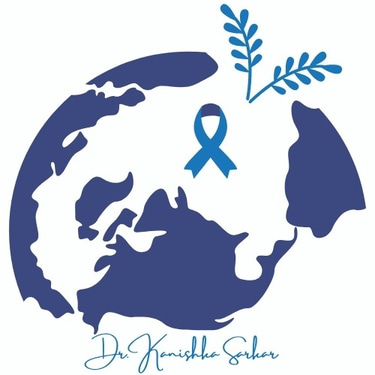Early Detection Saved My Life: A Uterine Cancer Survivor’s Story | Dr. Kanishka Sarkar
Learn how timely detection of postmenopausal bleeding led to early diagnosis and treatment of endometrial cancer. Dr. Kanishka Sarkar shares crucial advice for women’s health.
Dr. Kanishka Sarkar
8/27/20251 min read


Early Detection Saved My Life: A Uterine Cancer Survivor’s Story
When 53-year-old Anjali Das noticed light bleeding a year after menopause, she brushed it off as just another hormonal fluctuation. But what seemed like a minor issue turned out to be a life-saving signal.
A timely consultation with Dr. Kanishka Sarkar, a renowned gynecologic oncologist, changed everything. After a transvaginal ultrasound and biopsy, Anjali was diagnosed with early-stage endometrial cancer—a silent yet common threat among postmenopausal women.
“Endometrial cancer often presents with subtle signs. Early diagnosis, like in Anjali’s case, offers excellent outcomes,” said Dr. Sarkar.
Thanks to prompt medical care, Dr. Sarkar recommended a minimally invasive hysterectomy, followed by regular follow-ups. The surgery was successful, and today, Anjali is cancer-free.
“If I had delayed even a month, things could have been very different,” Anjali shares. Now, she has become a strong advocate for women’s health, encouraging others to never ignore postmenopausal symptoms.
🔎 Dr. Kanishka’s Key Advice for Women
Postmenopausal bleeding is never normal—get evaluated immediately.
Obesity, diabetes, and prolonged estrogen exposure increase the risk of endometrial cancer.
Early detection is the key to cure. The earlier the diagnosis, the better the treatment outcomes.
Takeaway
Anjali’s journey is a powerful reminder that listening to your body and seeking timely medical advice can save lives. If you or someone you know experiences unusual symptoms after menopause, don’t dismiss them—consult a specialist immediately.
Awareness, vigilance, and early detection remain the strongest defenses against uterine cancer.
